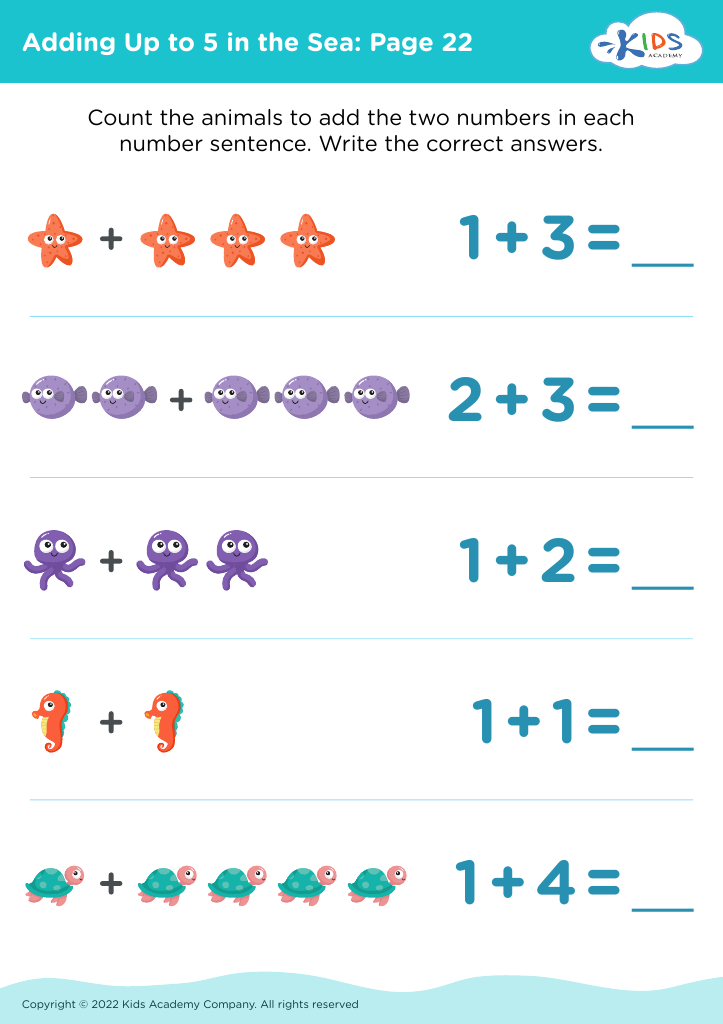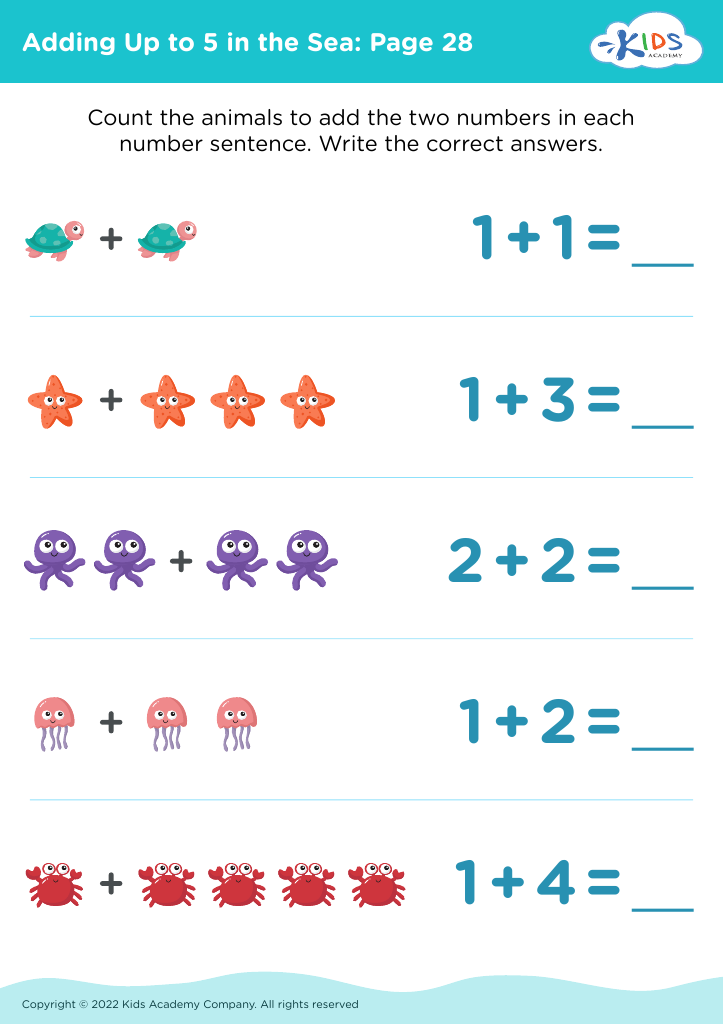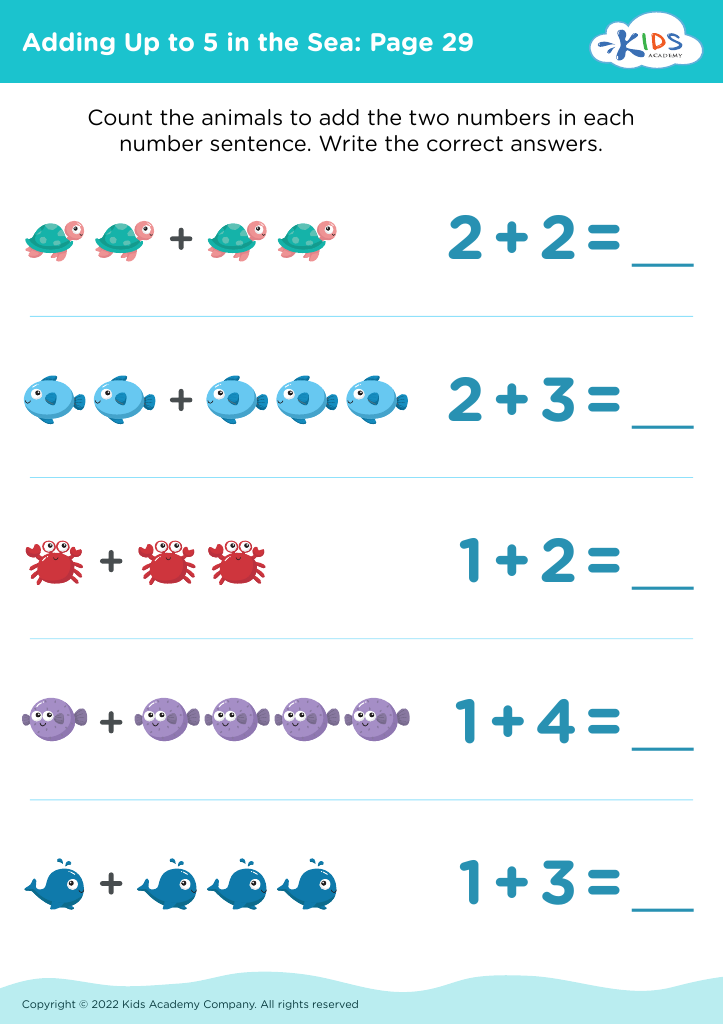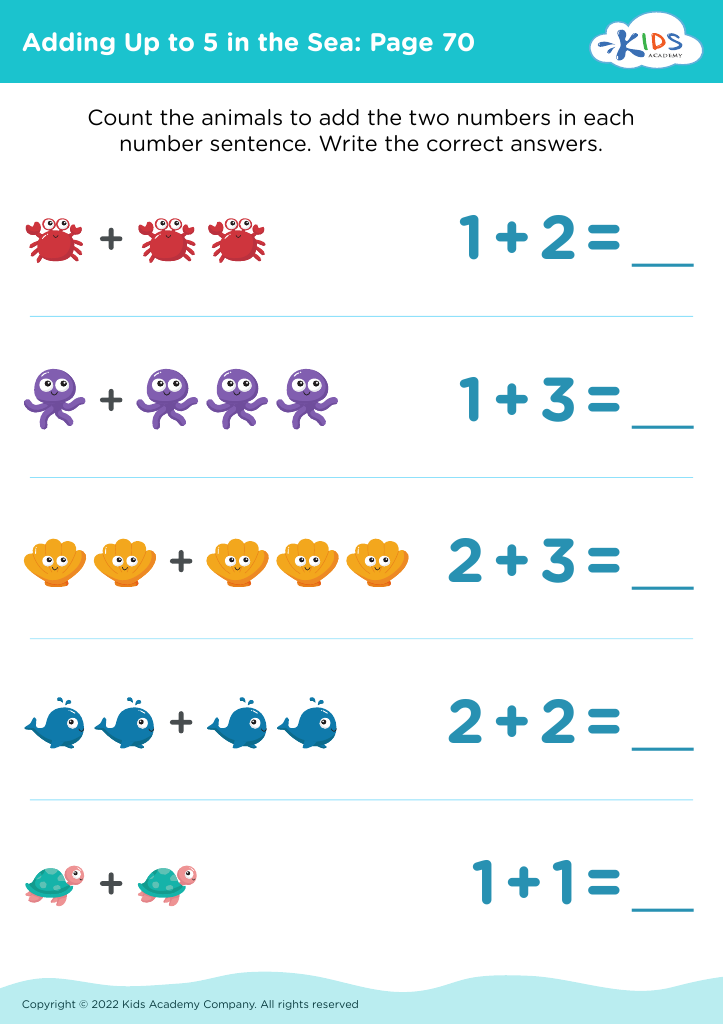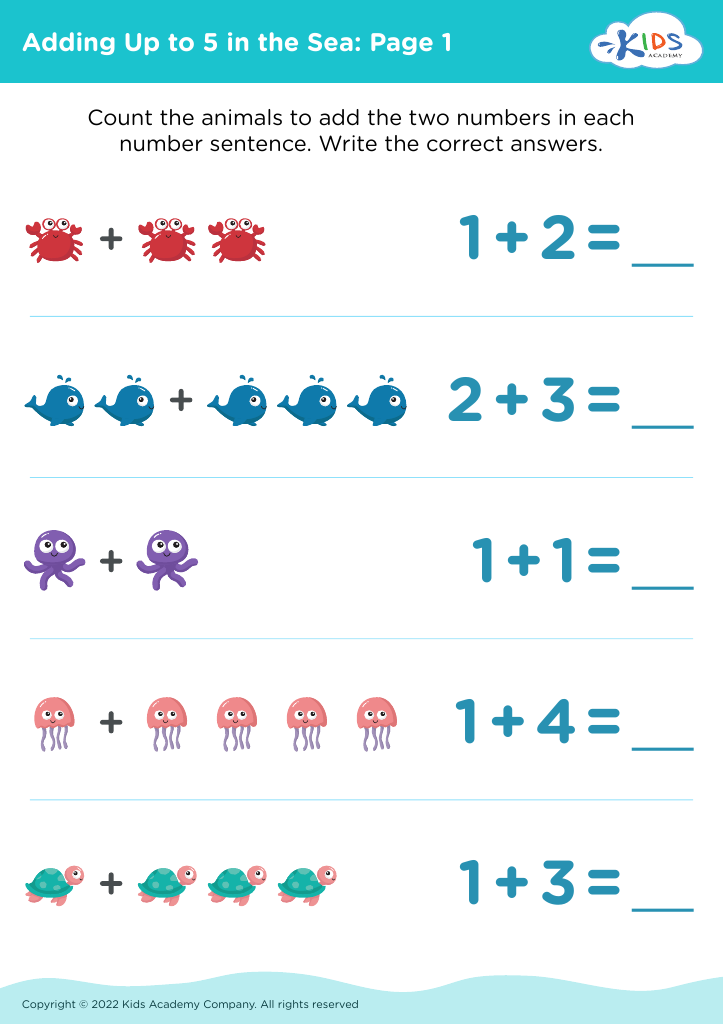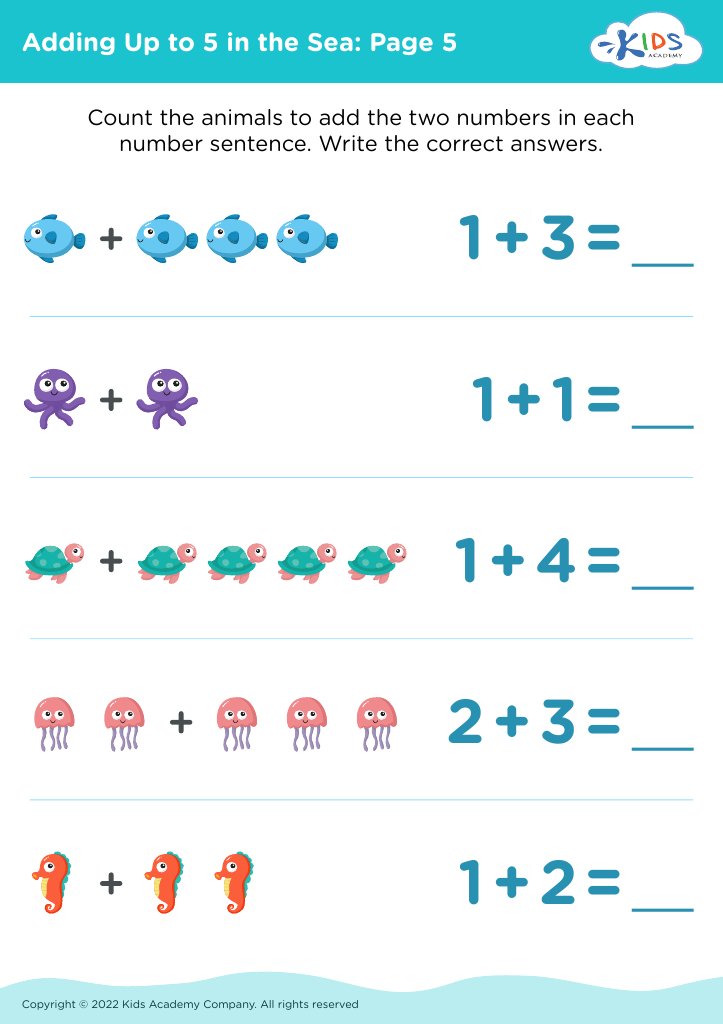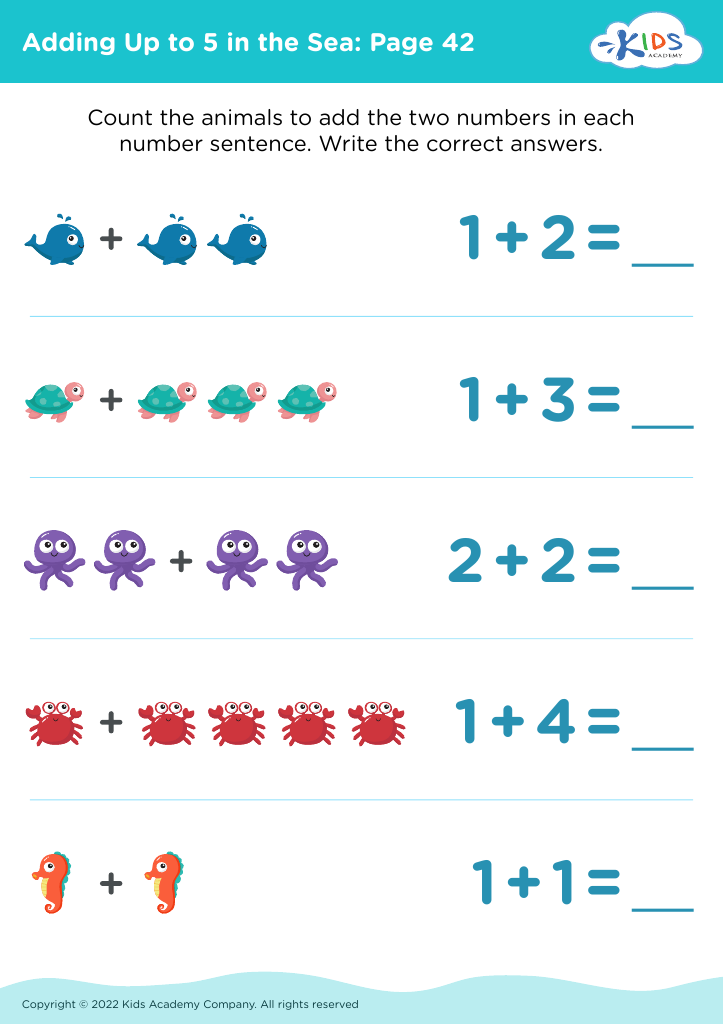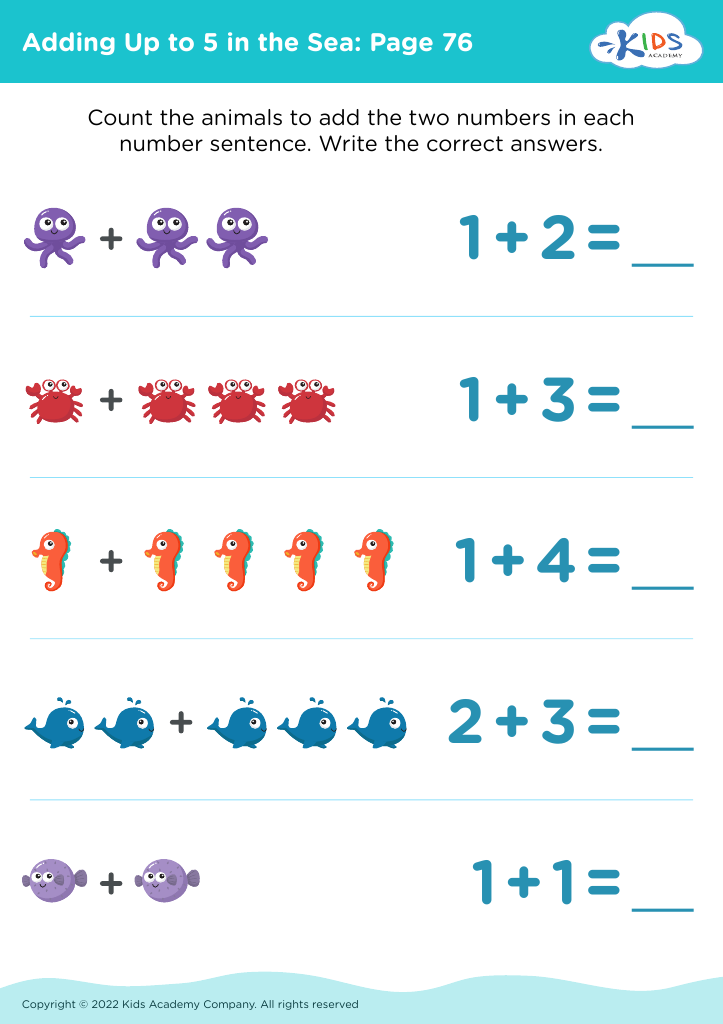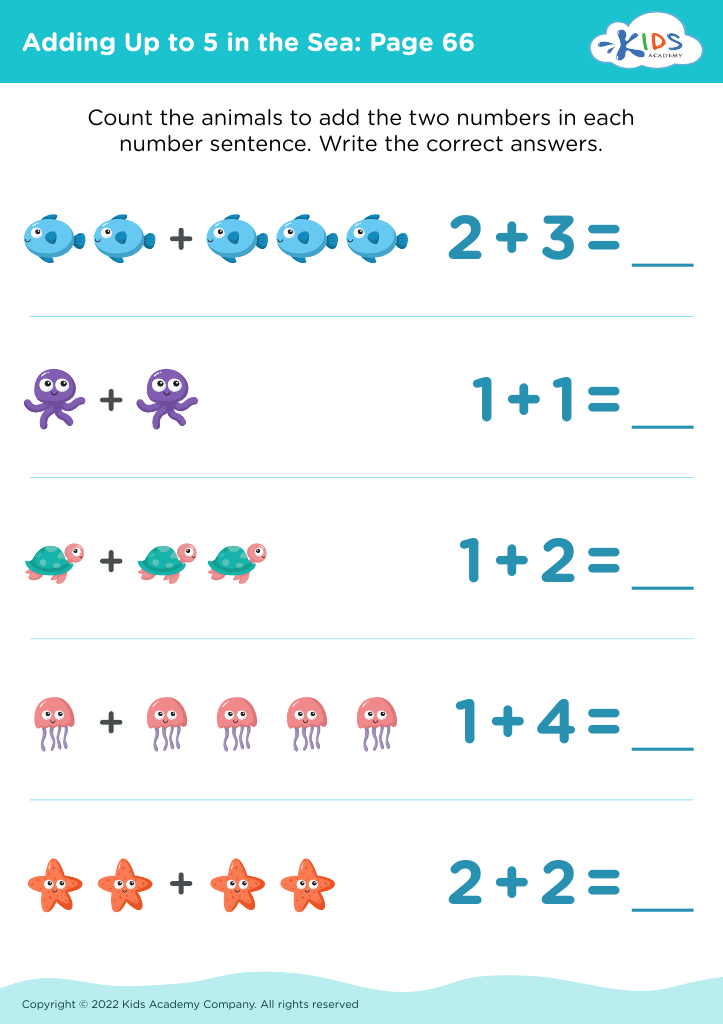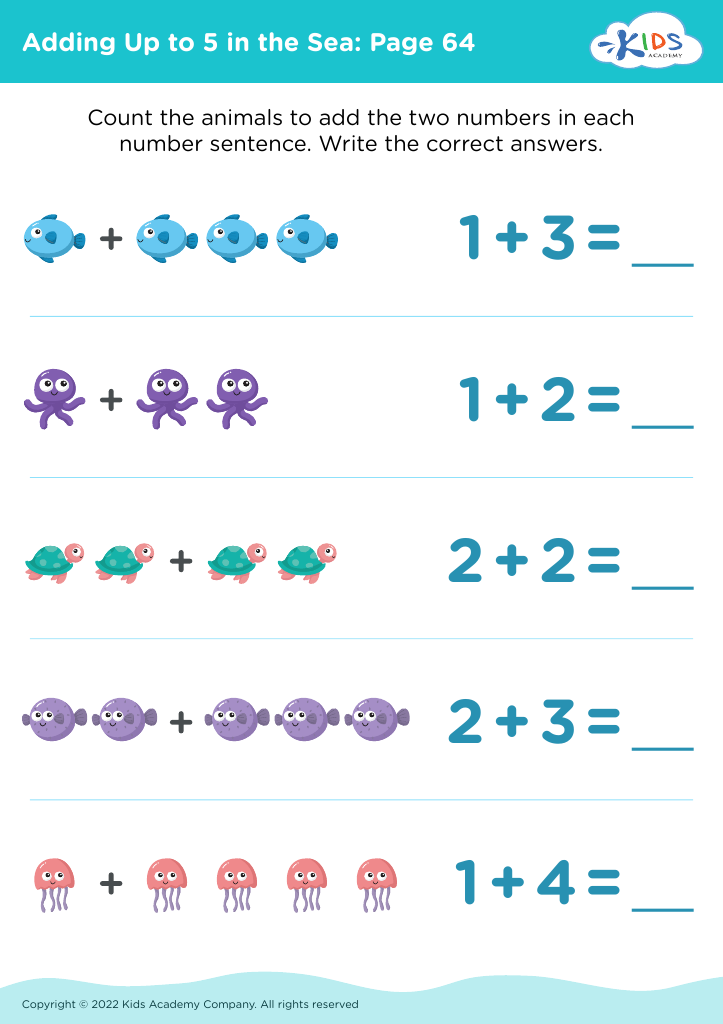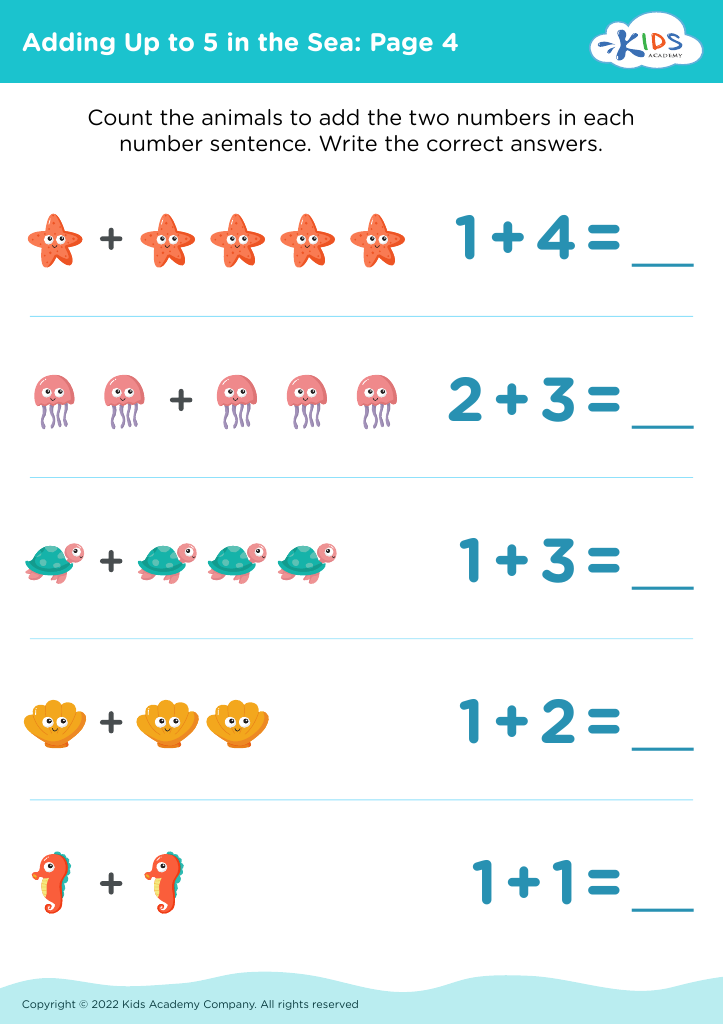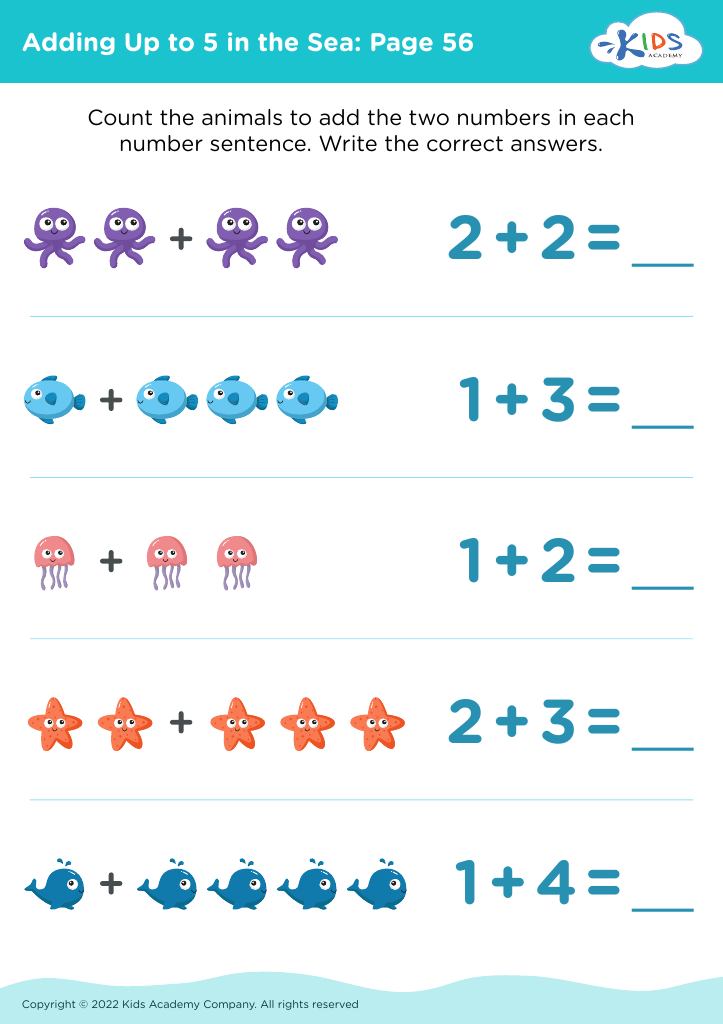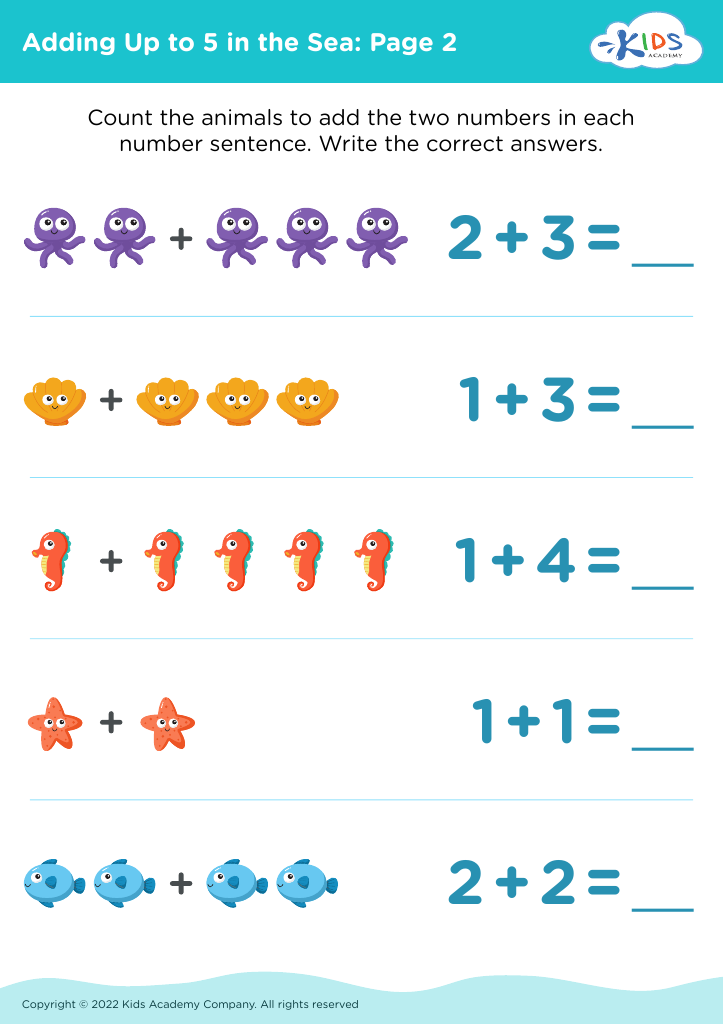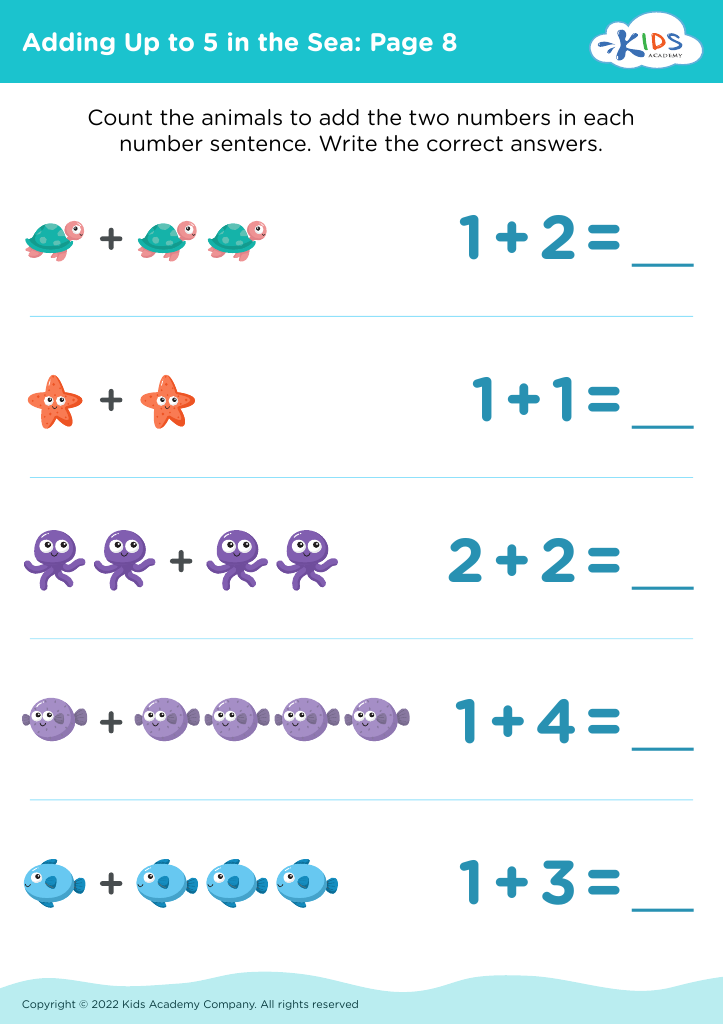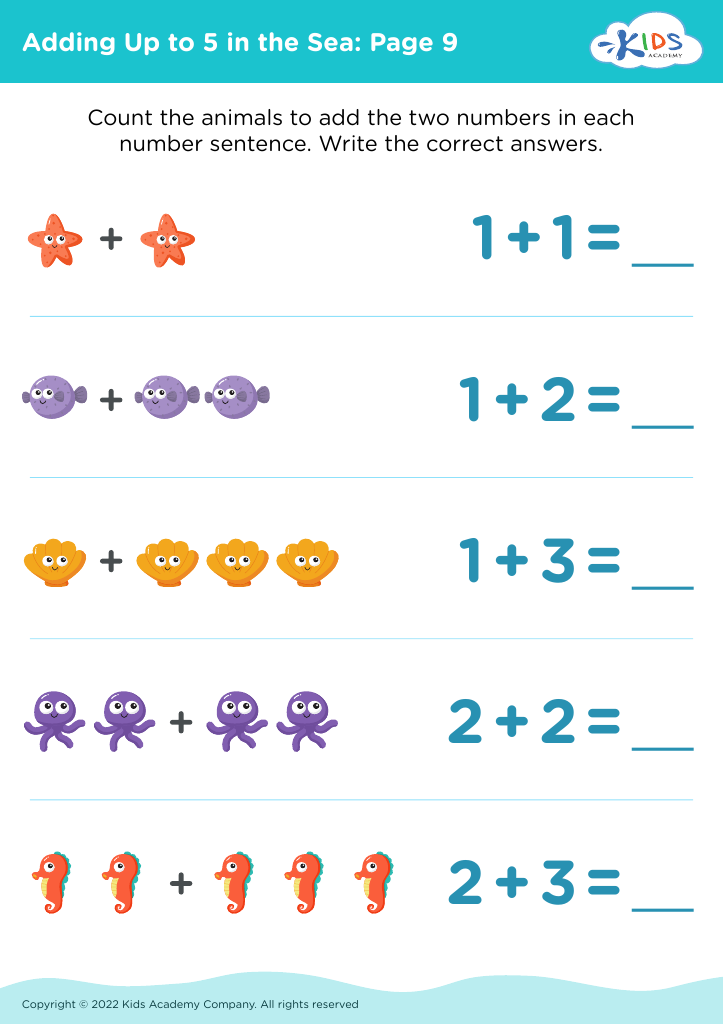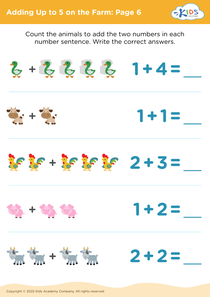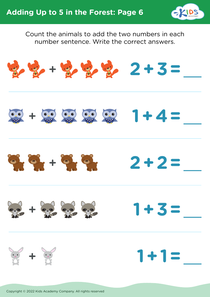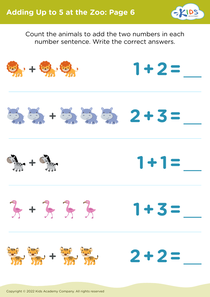Addition skills Adding in the Sea Worksheets for Ages 5-6
15 filtered results
-
From - To
Enhance your child's addition skills with our engaging "Adding in the Sea" worksheets for ages 5-6! These fun, ocean-themed activities make learning math exciting and interactive. Each worksheet is designed to reinforce foundational addition concepts while sparking creativity and imagination. Young learners will explore colorful aquatic illustrations as they practice adding numbers and solving problems. With a range of activities, including fill-in-the-blank equations and visual counting exercises, these worksheets are perfect for both classroom use and at-home learning. Dive into the world of addition and watch your child develop confidence and proficiency in math with our delightful sea adventure!
Parents and teachers should care about addition skills like "Adding in the Sea" for ages 5-6 because these foundational math skills play a critical role in early childhood development. Addition helps children develop problem-solving skills, logical thinking, and number sense, which are essential for later mathematical concepts. Using engaging themes such as "Adding in the Sea" not only captures young learners' imaginations but also makes abstract concepts more tangible.
Additionally, strong addition skills contribute to confidence in math, fostering a positive attitude towards learning. When children can successfully tackle basic operations, they are more likely to embrace complex ideas later on, creating a solid foundation for higher-level math skills.
Moreover, addition activities and games encourage social interaction among peers, teaching collaboration, patience, and communication. These skills are valuable beyond mathematics, contributing to emotional and social development.
Finally, ensuring that children grasp addition early sets the stage for academic readiness. As they progress through school, their ability to perform calculations quickly and accurately will impact their performance in all math-related subjects. By prioritizing addition skills now, parents and teachers can cultivate lifelong learners who appreciate and excel in mathematics.
